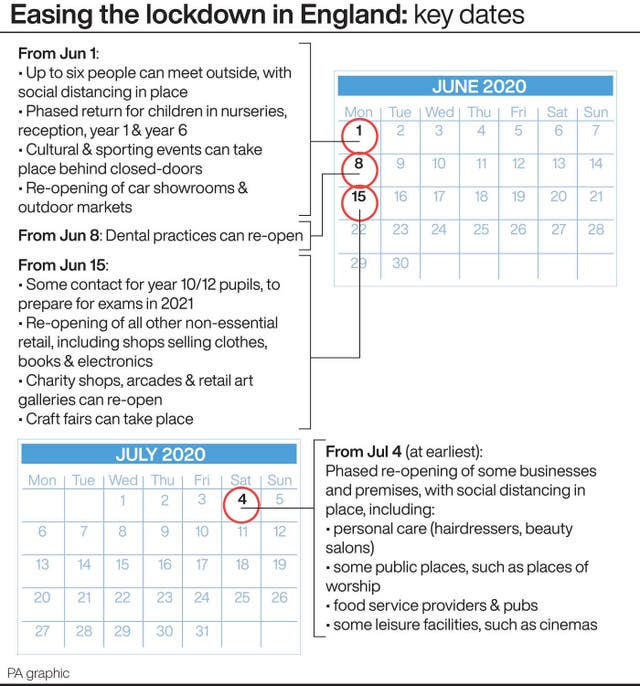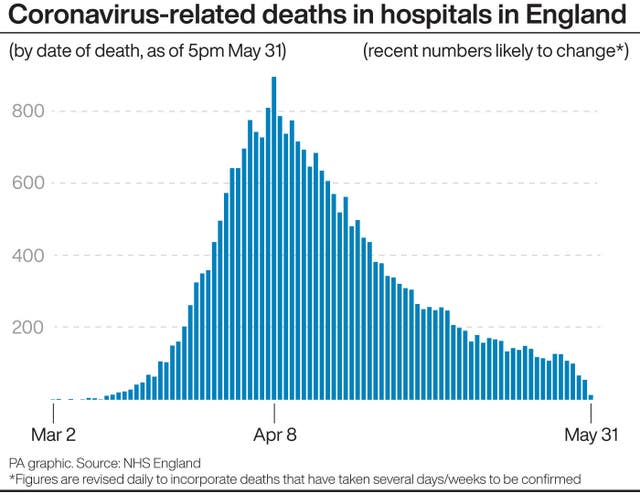A Cabinet minister has insisted the lockdown is being eased in a “very cautious” way as thousands of children in England began returning to school despite concerns from public health officials and parents.
Business Secretary Alok Sharma said he understands parents’ concerns over sending their children back to class on Monday, but added that the Government had not undertaken a “dash” to re-start the economy.
The Association of Directors of Public Health (ADPH) warned that experts were “increasingly concerned” that ministers are making the wrong judgment by easing restrictions too quickly.
And the general secretary of the Association of School and College Leaders, Geoff Barton, said head teachers were reporting attendance rates of between 40-60% of eligible pupils, as parents kept children at home.
Phased
Mr Sharma told BBC Breakfast: “This is not a dash. These are very cautious steps that we are taking. They are phased.”
He said that he “completely” understands that “every parent wants to keep their child safe”, but insisted the Government had taken steps to ensure schools are safe to return to as classes re-opened to children in Reception, Year 1 and Year 6 in England.

Downing Street said it expected the majority of primary schools in England to open to more children this week, with the Prime Minister’s official spokesman insisting: “We have only taken this step because we believe it is safe to do so.”
He also denied the lockdown was being eased too quickly, saying that the scientific “consensus” was that it is “unlikely” that the changes will push the coronavirus transmission rate R past the crucial value of one.
Classrooms were reopening as social restrictions across the UK were being eased so people can have limited contact with friends and family outdoors.
Crowded beaches
ADPH president Dr Jeanelle de Gruchy said public health directors were concerned that the public was “not keeping to social distancing as it was”, with pictures emerging of crowded beaches and beauty spots over the weekend.
With UK deaths linked to Covid-19 rising above 48,000, she said the NHS test and trace programme “is currently far from being the robust operation that is now urgently required as a safeguard to easing restrictions”.
And Dr de Gruchy added: “Directors of public health are increasingly concerned that the Government is misjudging this balancing act and lifting too many restrictions, too quickly.”

Groups of up to six people were also permitted to meet outside at a distance in England from Monday, and outdoor markets and car showrooms are reopening.
Socially-distanced outdoor meetings of the same size could already take place in Northern Ireland, while in Scotland individuals can meet those from one other household in groups of up to eight.
Wales has not set a size restriction, but groups meeting outside must only be comprised of individuals from two different households.
Many schools had remained open to vulnerable children and those whose parents are key workers, but they are now opening their doors wider in a phased approach from the Westminster Government.
A survey of local authorities by the PA news agency found more than 20 councils across England, predominantly in the north, were advising schools not to open.
Some raised concerns that the test and trace programme is not yet “robust enough” to sufficiently reduce Covid-19 transmission in schools, where social distancing is hard to maintain.
Wales has not set a date for schools fully reopening, while in Scotland and Northern Ireland pupils will be going back in limited return from August.

Some 2.2 million vulnerable people in England and Wales who had been shielded due to the heightened threat from coronavirus were also being allowed to go outdoors in England and Wales from Monday.
Meanwhile:
– Guidance from the National Police Chiefs’ Council and the College of Policing said police in England can tell people to leave a home if they are breaching the rules, but cannot force them to go.
– Government plans to end virtual voting, which could see kilometre-long socially-distanced queues in Parliament, were criticised as discriminating against shielding MPs.
– Pigeon racing beat snooker and horse racing to become the first sport to resume with the easing of lockdown restrictions in England.
The easing of the lockdown came despite the alert level remaining at four – which the Government previously said would mean restrictions remaining in place.
Chief medical officer for England Professor Chris Whitty and the newly-established joint biosecurity centre discussed the threat level last week but did not alter it, Downing Street said.
Related – Over 80% of parents not sending kids back to school today

